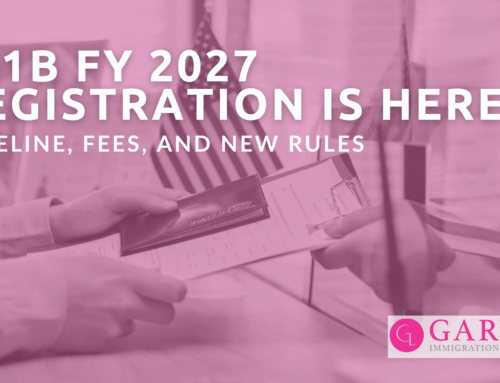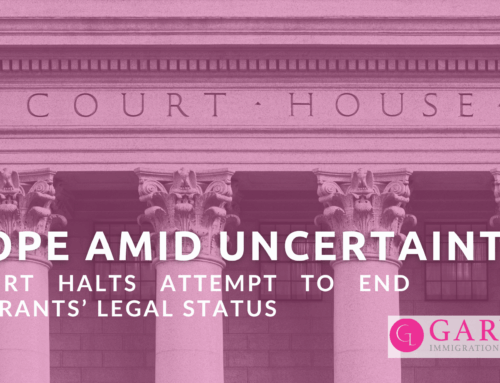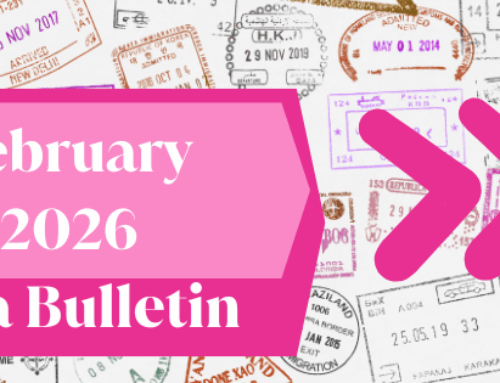On September 19, 2025, President Trump issued a Presidential Proclamation imposing a $100,000 entry fee on certain H-1B visa holders seeking admission to the United States. The measure, effective September 21, 2025, has raised significant questions for employers, foreign workers, and immigration professionals. In response, three key federal agencies – U.S. Citizenship and Immigration Services (USCIS), U.S. Customs and Border Protection (CBP), and the U.S. Department of State (DOS) – have released initial guidance clarifying who is impacted and how the policy will be applied.
Who Is Affected?
H-1B Workers Abroad
The fee applies to individuals outside the United States who are seeking initial admission or reentry under an H-1B petition filed on or after 12:01 a.m. EDT, September 21, 2025. This includes:
- Applicants for new H-1B visas at consulates or embassies with petitions filed after the effective date.
- H-1B beneficiaries abroad seeking admission under a newly filed petition.
H-1B Workers Already in the U.S.
Foreign nationals currently in the U.S. with valid H-1B status are not subject to the entry fee. They may continue extending their stay, amending petitions, and maintaining their existing status without triggering the new requirement.
Key Features of the Policy
- Filing Date Controls: The decisive factor is the date the petition is filed with USCIS. Petitions submitted before September 21, 2025, are not subject to the fee, even if the worker travels after the effective date.
- Extensions and Amendments: Routine extensions and amendments for H-1B employees already in the U.S. are excluded from the fee requirement. However, treatment of change-of-employer petitions is unclear, as agencies have not provided consistent guidance.
Areas Still Unclear
Despite agency statements, many important questions remain unanswered:
- Consular Processing: It is uncertain whether consular officers will issue visas for renewals, amendments, cap-exempt cases, or H-1B1 applications without proof of fee payment.
- Change-of-Employer Cases: USCIS has suggested new petitions may be subject to the fee, but DOS and CBP have not directly addressed mid-employment transfers.
- Cap-Exempt Filings: The proclamation specifically mentions the lottery system, leaving ambiguity about whether universities, nonprofits, and other cap-exempt employers will be covered.
- National Interest Exceptions: The proclamation references potential exceptions for those deemed in the national interest, but no criteria or procedures have been outlined.
- Payment Process: Agencies have yet to specify how employers must pay the fee, what documentation will be required, or whether dependents such as H-4 family members will face similar obligations.
Strategic Considerations for Employers and Workers
For H-1B employees abroad, employers should carefully plan travel and coordinate on entry requirements, including potential fee obligations. Workers already in the U.S. are generally advised to limit international travel until further guidance clarifies reentry procedures. Employers may also need to reassess workforce planning and explore alternative visa options for critical staff.
Although the proclamation is currently set for a 12-month period, it may be extended beyond September 2026. In addition, the Department of Labor has been directed to revise prevailing wage levels for H-1B adjudications, further signaling a shift toward prioritizing higher-paid, highly skilled workers.
Looking Ahead
The policy, implemented via executive action rather than traditional rulemaking, is expected to face legal challenges. Additional clarification is anticipated on issues such as cap-exempt petitions, waiver procedures, and change-of-status filings. Until then, employers and practitioners should monitor agency announcements closely, conduct comprehensive workforce risk assessments, and prepare contingency strategies for visa planning in this uncertain enforcement environment.




